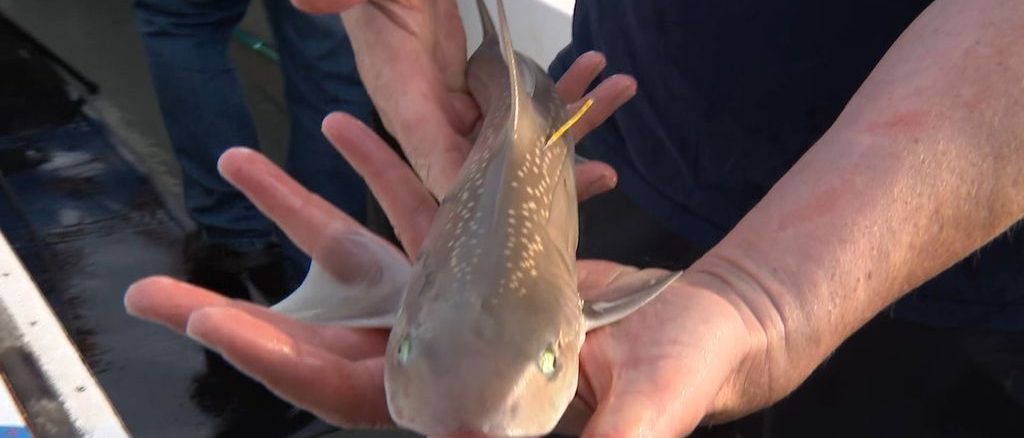
Anglers catch sharks for research: ‘They belong in the Netherlands’
Anglers cast their fishing lines off the Zeeland coast to catch sharks, tag them and release them back into the water. This mainly concerns the spotted smooth shark. Sharkatag is called the event, which started yesterday and lasts until tomorrow.
The aim of the research is to find out more about the function of Zeeland for the shark population. “We think it is a nursery, but we are not completely sure,” says Niels Brevé of Sportvisserij Nederland in the NOS Radio 1 Journaal. A boat from the interest club sailed back into the North Sea from the inner harbor of Neeltje Jans this morning.
Only young sharks under 50 centimeters receive a so-called floytag. “You have to imagine it as a strand of spaghetti. You stick it in the shark’s dorsal fin like an earring. It doesn’t notice anything.” That tag transmits satellite data.
The first day of the research started off well yesterday. The fishermen hooked thirty sharks in a few hours. Shrimp are put on the fishing rods.
There is no need to fear the animals, says Brevé. “They don’t have sharp teeth: they have flat teeth for eating crabs and shrimps.” Furthermore, they do have the well-known dorsal fin. “When they surface, you think, ‘Damn, that’s a shark.'”
More shark pups
Last summer it turned out that this shark species was doing well in the Oosterschelde. Then Sportvisserij Nederland, the organization that represents the interests of anglers, research into this as well. Since 2009 they have occurred in larger numbers in Zeeland. And it’s not just about adult animals. Shark pups are also increasingly found by anglers.
After ten years of research, it is now clear that the large sharks are away in the winter. Then the male sharks leave for Scotland and Norway and the females for France, Brevé explains. “They come back here in the summer. Just like swallows in the same place and time.”
‘Overjoyed’
In any case, the sex and length of each shark are noted. Then they all go back into the water. Over the past thirteen years, more than 5,000 sharks have been caught and tagged in this way.
“Many people have no idea, but sharks belong in the Netherlands,” says Brevé. “They are only sensitive to overfishing. We lost them for decades, but now we are overjoyed that they are coming back.” Anglers would prefer to see a release obligation. “We would like to see them preserved.”

Be the first to comment